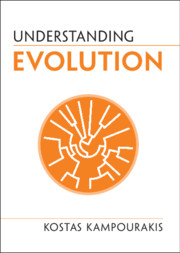Book contents
- Understanding Evolution
- Series page
- Understanding Evolution
- Copyright page
- Reviews
- Dedication
- Contents
- Foreword
- Preface: There is More to Resistance to Evolution than Religion
- Acknowledgments
- 1 The Public Acceptance of Evolution
- 2 Religious Resistance to Accepting Evolution
- 3 Conceptual Obstacles to Understanding Evolution
- 4 Charles Darwin’s Conceptual Change
- 5 Common Ancestry
- 6 Evolutionary Processes
- 7 Evolutionary Theory and the Nature of Science
- Concluding Remarks
- Summary of Common Misunderstandings
- References
- Figure Credits
- Index
6 - Evolutionary Processes
Published online by Cambridge University Press: 29 September 2020
- Understanding Evolution
- Series page
- Understanding Evolution
- Copyright page
- Reviews
- Dedication
- Contents
- Foreword
- Preface: There is More to Resistance to Evolution than Religion
- Acknowledgments
- 1 The Public Acceptance of Evolution
- 2 Religious Resistance to Accepting Evolution
- 3 Conceptual Obstacles to Understanding Evolution
- 4 Charles Darwin’s Conceptual Change
- 5 Common Ancestry
- 6 Evolutionary Processes
- 7 Evolutionary Theory and the Nature of Science
- Concluding Remarks
- Summary of Common Misunderstandings
- References
- Figure Credits
- Index
Summary
In the everyday use of the word, to adapt means to make something suitable for a new use or to adjust it to new conditions. Accordingly, adaptation may refer to the process of adapting something or of being adapted. A characteristic that is the outcome of such a process might also be called an adaptation. Thus, based on these definitions and on everyday experience, one could infer that biological adaptation is the process by which populations become better suited to their environment, which might consequently mean that some of their characteristics change and become suitable for new roles. These new characteristics might be called adaptations as well. Therefore, adaptation can be defined both as a process and as a feature, and indeed these are the uses of the term in evolutionary biology. In both cases, adaptation refers to the positive contribution that a characteristic makes to the survival and reproduction of its possessors (usually described as fitness). Whereas different definitions of adaptation as a process exist, they do not significantly differ from one another. Overall, adaptation has been defined as an evolutionary process for which natural selection seems to be an important factor; the differences among the various definitions have to do with how important natural selection is.
Information
- Type
- Chapter
- Information
- Understanding Evolution , pp. 121 - 148Publisher: Cambridge University PressPrint publication year: 2020
